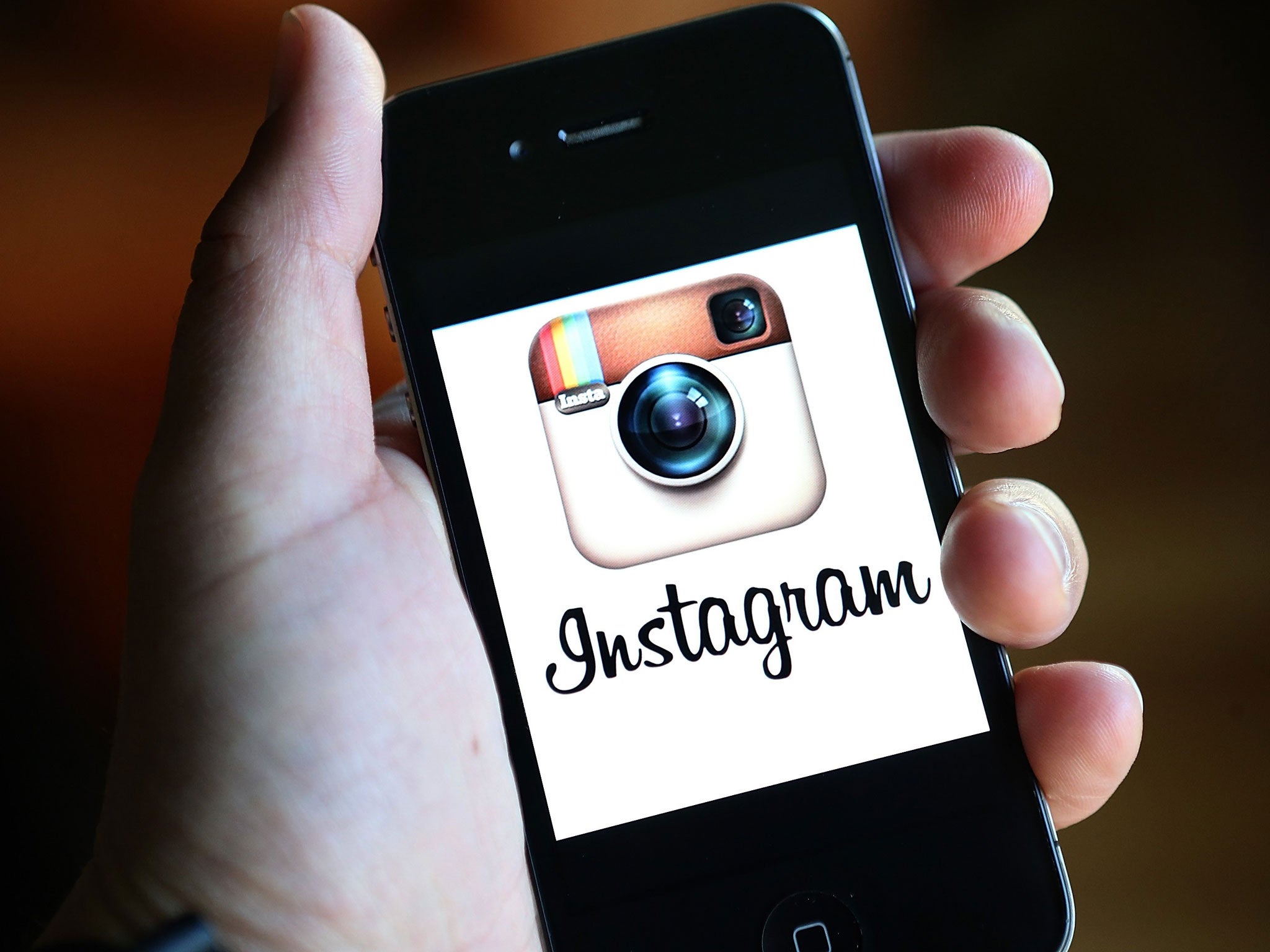Instagram: When do my pictures become their property?
The question has grown much more heated with the advent of the internet

What do you own?
The question seems straightforward if you limit it to physical objects. There is the stuff you buy for cash or credit – that scarf, your house, that book. There is stuff you lease, and stuff you happen to have borrowed and will return. But then, when we come to things you create yourself, the question of ownership can become a little bit fraught.
If you invent a cake – parsnip, ginger and cardamom cake – and your best friend, Brian, likes it and makes it himself at a tea party of his own, is the cake your intellectual property? What about if he sells it at a fête? Or then starts making it regularly and calling it Brian’s Yummy Parsnip Cake? And then starts selling it through Sainsbury’s? At some point in this expansion, your intellectual property has been breached. But probably not at the beginning.
Or jokes. Clearly, here, a professional division arises. Professional comedians have been known to claim ownership over their jokes and to take action if other professionals use them without acknowledgement. It seems odd – the copyright surely rests with the writers, not the comedian who tells the jokes, just as in any other form of performance. But no one who repeats a funny joke told and, for all he knows, invented by that friend is breaching intellectual copyright.
The question has grown much more heated with the advent of the internet. This week, the photosharing website Instagram caused outrage with its announcement that its terms and conditions were changing. Initially, the Facebook-owned photography service had announced that it could from now on display your “username, likeness, photos… and/or actions you take” in connection with advertising without notifying or reimbursing you.
It’s a thorny issue. Many social media sites force you to grant the site the right to use your images and content to promote the service itself, even if you retain ownership of your content. And, actually, for the most part, it’s more a question of privacy than of ownership. None of us wants our private images shared and published. The issue of whether Instagram and its partner companies would have started to make money out of our holiday snaps would hardly have been likely to arise.
Nevertheless, with the internet’s coming, a series of assaults on copyright as traditionally conceived has taken place, either through changing practice or assertion of intent. Astonishingly, Google announced its intention digitally to copy books which were still under copyright, without reference to the copyright holders – namely, the authors. If you didn’t want your property stolen in this way, you had to write and withhold permission – a direct violation of the Berne Convention’s universal principle that copyright does not need to be asserted. Google said it had the legal right to create “an easy-to-use index of books”, not meaning an index at all. It wanted to make the full text of copyrighted books available without consultation. So no. It didn’t.
And Instagram seems to have accepted that it doesn’t have the right to take your photograph of your husband in Speedos, without asking first, and sell it to WeightWatchers to use in its advertising. After uproar from its users, Instagram has reverted to the initial terms of service from 2010. “Instagram has no intention of selling your photos, and we never did. We don’t own your photos – you do,” the company’s founder, Kevin Systrom, said. How that ownership is supposed to work in the light of Instagram’s intention to maintain the right to sell your images remains unclear.
“We’d like to experiment with innovative advertising that feels appropriate on Instagram,” Kevin wrote before the uproar forced a full retreat. The trouble is, Kevin, that most people just think of these things as elaborate electronic noticeboards – things to be used at our own convenience. Whenever one hears an internet mogul using the words “innovative” or “appropriate”, watch out. It means he’s seen an opportunity, not to be missed.
Twitter: @PhilipHensher
Life of Pi’ feels more like animation than live action
I didn’t see most of Life of Pi, Ang Lee’s film of the terminally mawkish novel by Yann Martel. A long-standing phobia about tigers – even in illustrated, pixellated or artificial form – placed my coat in front of my face at regular intervals. After 40 minutes, my husband pointed out in an irritated whisper that this was a film about tigers, in case I hadn’t noticed. (I had.) So perhaps I should leave. (I did.)
Though I was in no position to notice in detail, the tiger and much else about the film are CGI generated, not existing as anything but megabytes on the studio floor. I’m sure it was much better than dealing with animal wranglers and their malodorous charges, but still. The film ends up as one of those curious live-action/animated combinations which flourished from Mary Poppins and Bedknobs and Broomsticks to Who Framed Roger Rabbit?. The animals are gone; much of the scenery is computer generated. There is no need, really, to have actors any more. Instead of Rafe Spall’s questioning persona, why not have a sort of avatar, an all-purpose good-looking actor-substitute? The movies, in short, are getting much more like Second Life, and much less like a recorded performance of The Cherry Orchard.
But one thing doesn’t yet seem susceptible to artificial creation from scratch: voices and sounds. No one has yet manufactured a voice which seems genuinely warm, human and flexible. When many apparently live-action films are in reality as manufactured and animated as Dumbo, one thing will still remain; the actors speaking their lines into a microphone. That improvisation and humanity, so far, can’t be faked.
Join our commenting forum
Join thought-provoking conversations, follow other Independent readers and see their replies
Comments
Bookmark popover
Removed from bookmarks